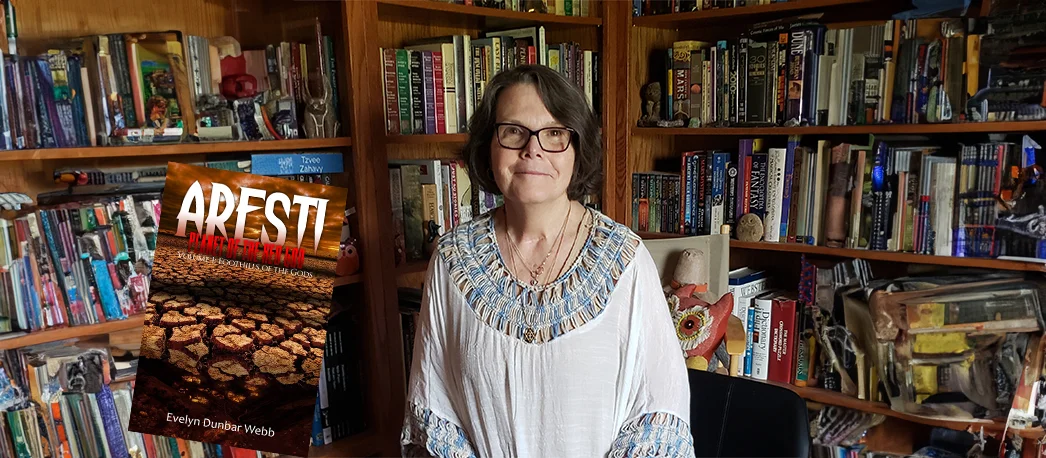Exploring the Cosmic Odyssey – An Interview with Author Evelyn Dunbar Webb

Unveiling the Creative Process Behind the Aresti Trilogy and the Inspirations That Fuel It
Evelyn Dunbar Webb crafts compelling narratives, blending rich culture, intricate characters, and cosmic adventure, captivating readers with imaginative storytelling.
Evelyn Dunbar Webb, a luminary in the realm of literature, returns with her latest creation, the captivating world of Aresti. With a career spanning over four decades and accolades in children’s stories, poetry, and essays, Evelyn’s journey to Aresti began in the corridors of her childhood imagination.
Inspired by the Mars 1 mission in November 1962, Evelyn’s fascination with Mars took root. Her father, a connoisseur of science, science fiction, and mythology, ignited her curiosity by delving into the origins of planetary names. In that moment, Mars transformed into ARESTI, the Ti of Ar-es: Planet of the Red God. Nearly four decades later, Evelyn fully embraced the story she had been destined to tell.
Delving into the intricate society and culture of the Arestian people was a journey guided by Evelyn’s own experiences. Crafted against the backdrop of her childhood, Aresti: Planet of the Red God is a trilogy of young adult novels, with Foothills of the Gods leading the charge. Set amidst a science fiction tapestry, the series follows the odyssey of sixteen-year-old Blaas Rakendo, inviting readers on an adventure through time and space to a mysterious subterranean world.
Exploring themes of alien visitation and diplomatic relations, Evelyn masterfully weaves science fiction myths and realities. Her background as an English teacher and workshop instructor provided invaluable insight into character development, particularly in bringing Rakendo to life. Drawing from interactions with teenagers in traditional and special education settings, Evelyn captured the essence of adolescence with authenticity and depth.
The political intrigue within the narrative is a testament to Evelyn’s literary prowess. Balancing world-building with plot advancement, she drew inspiration from literary classics like Homer’s Iliad and Odyssey, Gulliver’s Travels, and The Once and Future King. Her storytelling resonates with Joseph Campbell’s notion of myths as roadmaps for life, guiding Rakendo’s quest for balance between tradition and progress.
Character dynamics are the heart of Evelyn’s narrative, each character imbued with life-like qualities. From protagonists to antagonists, Evelyn meticulously crafted their essence, noting key features and motivations that shaped their interactions. Themes of heritage and legacy, deeply personal to Evelyn, permeate the narrative, reflecting her own upbringing in mid-twentieth-century New England.
Aresti, a world teeming with art, poetry, and curiosity, conceals a deep-seated lie that threatens its very existence. As Rakendo navigates this labyrinth of truth and deception, he embodies the struggle for rebirth and renewal. Evelyn’s storytelling transcends the boundaries of fiction, offering readers a glimpse into the human condition and the timeless quest for self-discovery.
Evelyn Dunbar Webb’s journey from imagination to creation is a testament to the power of storytelling. With Aresti, she invites readers on an odyssey through the cosmos, weaving a tapestry of adventure, intrigue, and self-realization. As Rakendo’s journey unfolds, so too does Evelyn’s legacy as a master storyteller in the pantheon of literature.















